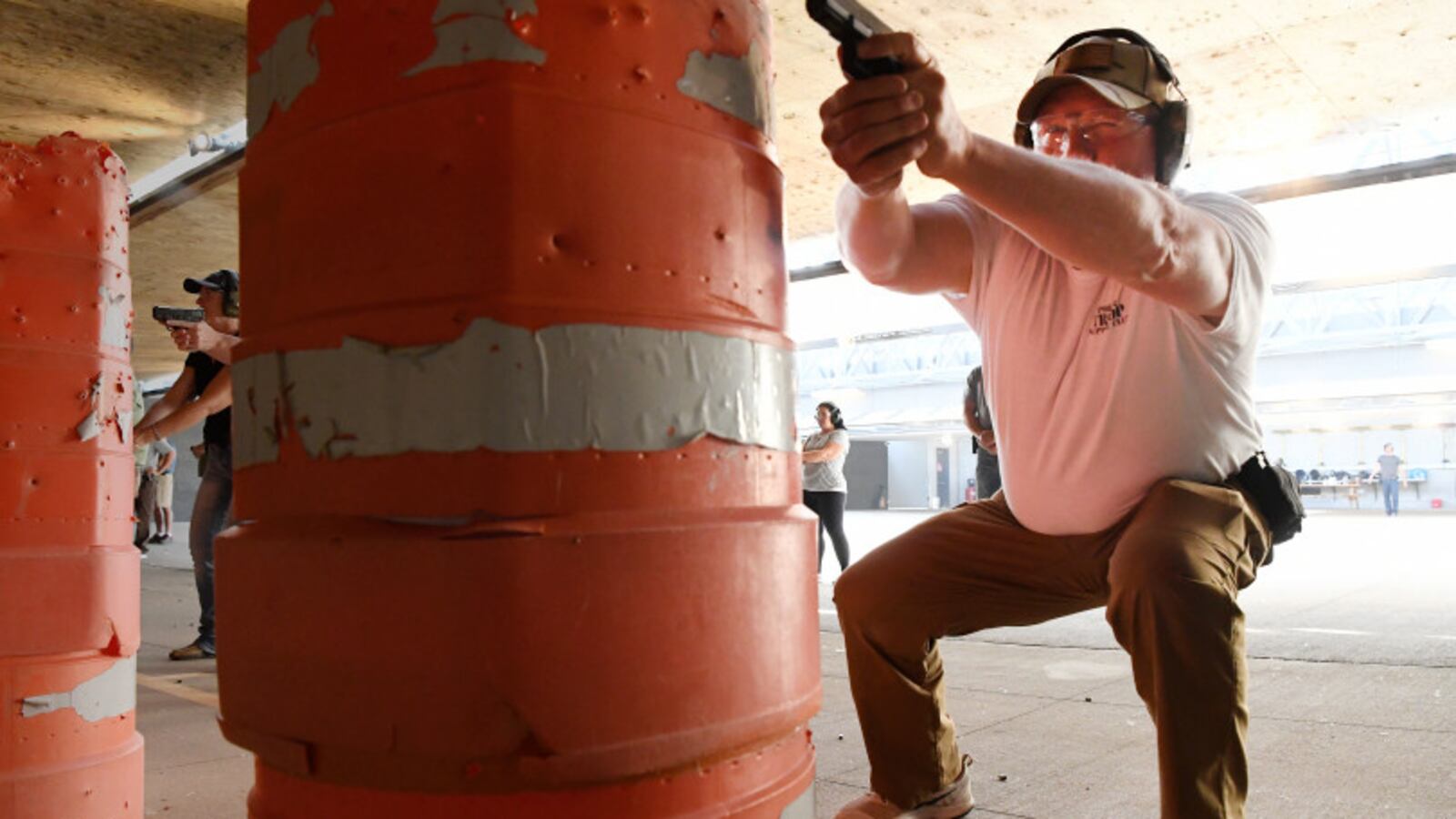Should the federal government make money available for schools to arm teachers, it would be up to each district in Colorado to decide whether to take advantage.
“As a general rule, this would be a local control issue,” said Angelika Schroeder, a Boulder Democrat and the chair of the State Board of Education.
And at least one local advocate for arming teachers said Colorado doesn’t need federal policy for local districts to do what they think is right.
“Nobody is out there asking the federal government to buy me a gun,” said Laura Carno, who brought the FASTER training program, which is intended to prepare school personnel to respond to active shooter situations, to Colorado and supports allowing trained teachers to have firearms in school.
The New York Times on Wednesday reported that Education Secretary Betsy DeVos was considering making federal money available for schools to buy firearms for teachers and train them to use them.
This would be a major departure from current policy. The school safety bill that Congress passed in March explicitly prohibited using the money for firearms.
According to the New York Times, the federal Department of Education is looking at using the Student Support and Academic Enrichment grant program, which contains no direct ban on using the money for weapons. The report cites “multiple people with knowledge of the plan.” The program’s stated purpose is to “provide all students with access to a well-rounded education, improve school conditions for student learning, and improve the use of technology in order to improve the academic achievement and digital literacy for all students.”
Large portions of the education community quickly condemned the idea, and an unnamed Trump administration official disputed the report on Thursday in comments to CNN. The official suggested that DeVos wants Congress to weigh in.
The official response from the Department of Education was vague and left the door open.
Liz Hill, a DOE spokesperson, told CNN that “the department is constantly considering and evaluating policy issues, particularly issues related to school safety. The secretary nor the department issues opinions on hypothetical scenarios.”
The Colorado Department of Education gets about $10.5 million each year in Title IV grant money and distributes it to school districts based on a formula. A department spokesperson said the state doesn’t have discretion over how districts use the money, so long as they comply with federal regulations.
It’s not clear yet whether those federal regulations will be interpreted or expanded to allow for the purchase of firearms.
Schroeder said she doesn’t anticipate the state board taking a position on something over which it doesn’t have discretion, but if it did, it would likely be a split vote. She declined to offer a personal opinion on the idea but referred to a tense discussion earlier this year as the state board approved standards for health and physical education.
Republican board members wanted the standards to include a reference to the benefits of gun ownership, though they ultimately ceded to their Democratic colleagues, who opposed the reference, without forcing a vote.
Schroeder said she doesn’t think a lot of districts would want to use grant money to buy firearms for teachers. She said that arming security guards or hiring more school resource officers would be more popular, though much more expensive and not envisioned in the proposal described by the New York Times.
Carno said the FASTER training, which originated in Ohio after the Sandy Hook shooting, has proved popular, and she’ll have offered four classes by the end of 2018. But she doesn’t like the suggestions that have come out of the Trump administration, including one earlier this year that teachers be offered bonuses for carrying weapons or this more recent idea of using federal money to pay for firearms.
The educators who go through training are generally people who already own and carry concealed weapons in their personal lives. They want to own their own weapon that fits their needs, and they don’t want extra money to carry their weapon in the classroom, she said.
Carno said grants to offset the cost of training programs would be useful, though she’d prefer that money to come from the state rather than the federal government. Tuition for the three-day FASTER training course costs $1,000, and the group raises money privately to cover the cost for many participants.
More broadly, she doesn’t think this is a situation where the federal government should be setting policy.
“I don’t want the federal government making curriculum decisions nationwide,” she said. “I don’t want them making policy about firearms in schools nationwide.”
Many Colorado school districts strongly oppose arming teachers and have supported student walkouts in protest of gun violence. Others have made the decision to arm staff members.
No one tracks how many Colorado school districts allow teachers to carry weapons. Earlier this year, The Denver Post found at least 30 school districts and charter schools that were willing to state publicly that they did so. Many of them are small, rural districts in communities where gun ownership is common and law enforcement is far away. There are no state standards for training teachers on using weapons.
The Peyton district in El Paso County is the most recent to take up the question of arming teachers, with a vote expected in September.
While Carno doesn’t think the ideas that have come out of the Trump administration are quite right, she does think they’ve shifted the conversation toward more guns in schools.
“Previously, the national conversation was about gun control rather than stopping bad guys,” she said.

